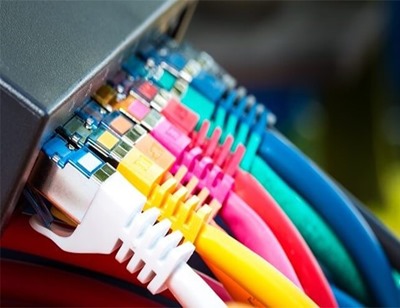If you are on the lookout for a new network structure that will meet all the technological needs and requirements of your particular organization, then you will have a lot of research to do before making this choice. Okay, you won’t exactly need to turn into a network cabling expert, as that would undeniably take a lot of time and effort. The simple truth is, though, that you will have to learn a few things about these services before finding the right commercial network cabling Melbourne provider that will meet your needs.
In few words, this means that you’ll need to learn precisely what it is that makes good network cabling, as well as what it is that you should keep in mind when choosing these providers. Today, we are going to answer those questions for you one step at a time. We will begin by checking out what it is that your network cabling structures should have in order to be called great. This way, you’ll know precisely what to keep in mind when you proceed to choosing your provider, but I’ll give you some tips on that later as well. First things first, let’s check what makes good network cabling.
1. Great Security
Let us talk about the most obvious thing before going any further. Simply put, every single organization is, and should be, extremely worried about their security. This is even more important if you need to protect your clients’ information instead of only yours. Basically, if you don’t find a way to protect the info, chances are that you will quickly lose those clients, which means that your whole organization will most likely fail.
Since you don’t want to fail, you’ll need to think about securing yourself on every single level. Whether you knew that or not, network cabling plays a significant part in that endeavor. When it is done the right way, it will make network segmentation easier, which will further lead to protecting your data against infiltration and any kinds of unwanted attacks, breaches and malware. So, great security is the first element that makes network cabling good.
2. Clear Labeling
Now, here is something that you might not have even thought about, but that could lead to problems in the future if left with no attention whatsoever. I’m talking about the fact that your cables should all be clearly labeled and easy to identify. Chances are that the same installers that will initially put the infrastructure together won’t actually be available when the time comes for expansions or reconfigurations.
Thus, your next providers will either be lucky enough to have every single cable clearly labeled, or they will grab their heads and get extremely frustrated upon realizing that nothing is labeled and that identifying the purpose of the cables is about to turn into a nightmare. This won’t only be a problem for the next installers, though, but for your whole organization, as the whole process will take much more time. That’s why clear labeling is another important element that you should keep in mind when trying to decide if particular network cabling is good or not.
Here are some cable types and their specifications if you want to get into more details about the labeling and identification: https://www.computernetworkingnotes.com/networking-tutorials/network-cable-types-and-specifications.html
3. Flexibility
If you decide to expand structured cabling, add extra workstations or certain new machines, you will have to keep in mind that your current infrastructure will either make that possible or impossible. If I asked you whether you want these expansions to be possible or impossible, I believe I know what the answer would be. You would want those to be possible, which is why flexibility is an important aspect of every cable networking system.
The system should be flexible, as well as futureproof. In other words, it should take into consideration the fact that you might be making certain changes in the future and it should be created in a way which will easily allow for those changes. After all, you don’t want to have an extremely difficult time when trying to expand your organization and thus move your business forward towards success. So, flexibility is another significant factor to keep in mind.
4. Downtime Reduction
Speaking of expansions, I suppose that you would love to have those done without disturbing the entire network and without your users experiencing any downtime whatsoever. Well, when you get a good network cabling system, you won’t have to worry about such downtime at all, since the system will be created in a way that won’t cause disruptions any time you want to change or replace certain devices. Downtime reduction is certainly rather significant for every single organization and there’s no doubt in my mind that yours is not an exception to this rule.
How To Choose Your Provider
After understanding what it is that makes good network cabling, there will only be one thing left for you to do. Simply said, you will need to find the perfect service provider that can meet all your requirements and ensure that your systems are flexible, clearly labeled, that they offer maximum security and that they are basically of perfect quality. There are undoubtedly a lot of providers that will be ready to offer these services to you, but your task is to find the right one, instead of rushing into this decision and just choosing the first one that comes along.
During the process of choosing the perfect provider, you should pay attention to a few important factors. For starters, you should check just how experienced specific companies are in this line of business and then refuse to work with any of those that aren’t exactly knowledgeable and experienced enough. Then, you should also take some time to check how reputable particular companies are, since working with ill-reputed ones is bound to lead to nothing but troubles. Once you have determined their reputation and the level of their experience, you should take some time to compare the results of your research and make your final choice.


